Entrepreneurship is often glorified, but what most people don’t see are the sleepless nights, failed ventures, and moments of self-doubt that successful entrepreneurs experience. Meet Marc Lou—a solopreneur who went from earning $10 an hour as a waiter to building a business that makes $1.5 million a year. His story is one of perseverance, learning through failure, and finally discovering the formula to succeed on his own terms.
Marc lou (Portfolio) – https://marclou.com/
Marc lou (Instagram) – @marclouvion
Marc lou (Twitter) – https://x.com/marc_louvion

The Early Days: Chasing the Startup Dream
Like many aspiring entrepreneurs, Marc’s initial vision was grand. He wanted to be the next Mark Zuckerberg, building a billion-dollar startup that would revolutionize the world. He envisioned a Tinder-like app for sports lovers, believing it would be the next big thing. Confident and eager, he spent an entire year working on the app while living with his parents and working part-time as a waiter.
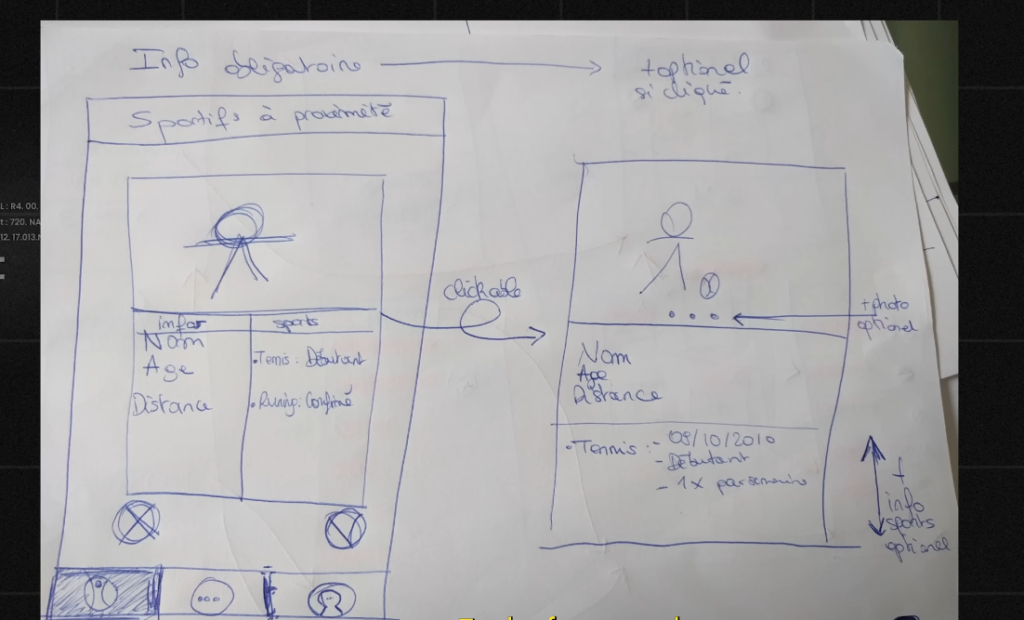
But as the months went by, reality hit. Marc realized he didn’t have the skills or a plan to monetize his idea. After a year of effort, he scrapped the project. His self-image, which had been tied to this grand vision, crumbled. Feeling lost and frustrated, he made a bold move—he quit his relationship, left France, and moved to South Korea to pursue another startup opportunity.
Trial by Fire: The Endless Loop of Failure
In South Korea, Marc teamed up with a friend to launch an AI startup. They managed to raise venture capital, but without strong marketing or product skills, the business failed to gain traction. The venture ended in disappointment after months of hard work, leaving Marc broke, without any income or savings.
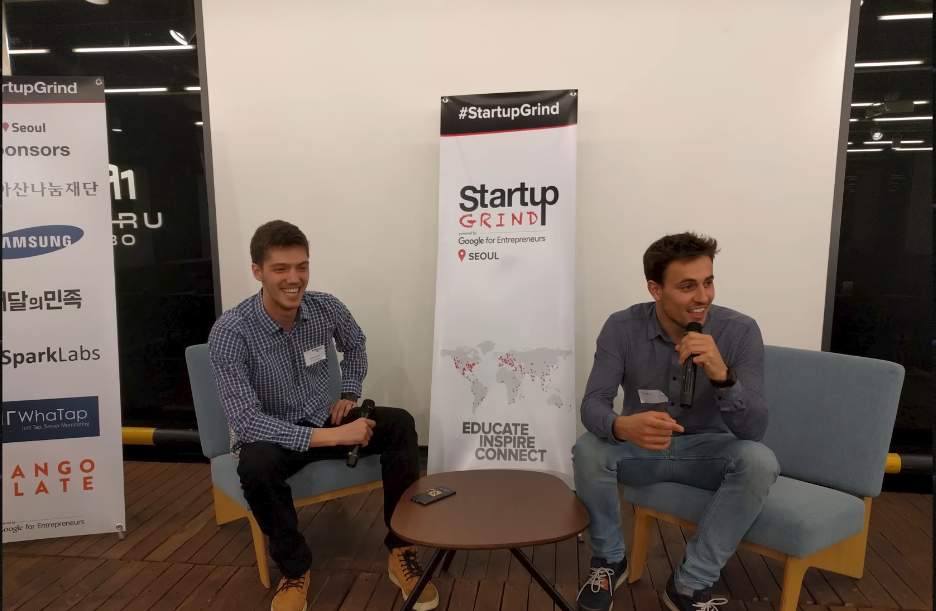
Undeterred by his previous failures, Marc took on small, quick-result projects to make ends meet. One of these included trying to sell quirky hand-holding gloves he saw advertised on Facebook. Despite putting in the effort, this too failed. Frustration was setting in, but Marc still held onto his dream of making it as an entrepreneur. He just needed the right approach.
The Turning Point: Shifting Focus to Solving Real Problems
With three failed businesses and countless lessons learned, Marc took a step back and reevaluated his strategy. Instead of focusing on grandiose ideas, he shifted his attention to solving simple, real-world problems that small businesses faced. He realized that many escape room businesses were struggling to attract customers, so he set out to build a tool that could help them.
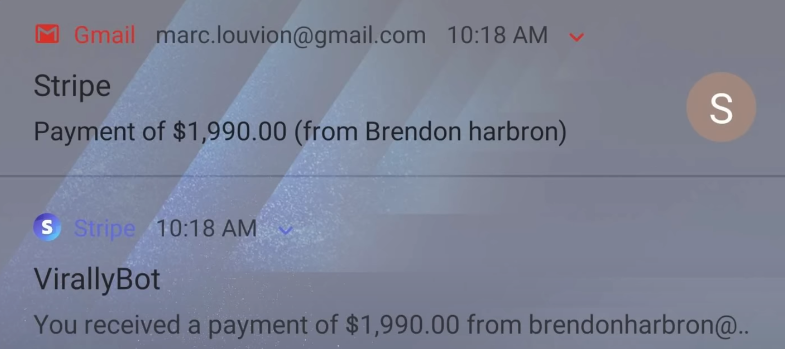
This time, things were different. He took advice from a marketing expert and sold the idea before even building the product. To his surprise, he secured his first paying customer through a simple cold email. For the first time, he experienced success, and more importantly, he learned that entrepreneurship didn’t require a perfect product—just a solid idea and a paying customer.
Growth and Setback: Building Momentum and Facing COVID-19

With the success of his tool for escape rooms, Marc’s revenue grew steadily. He moved to Bali with his girlfriend, where life seemed perfect. His monthly income reached $4,000, and he was finally living the entrepreneur lifestyle he had dreamed of.
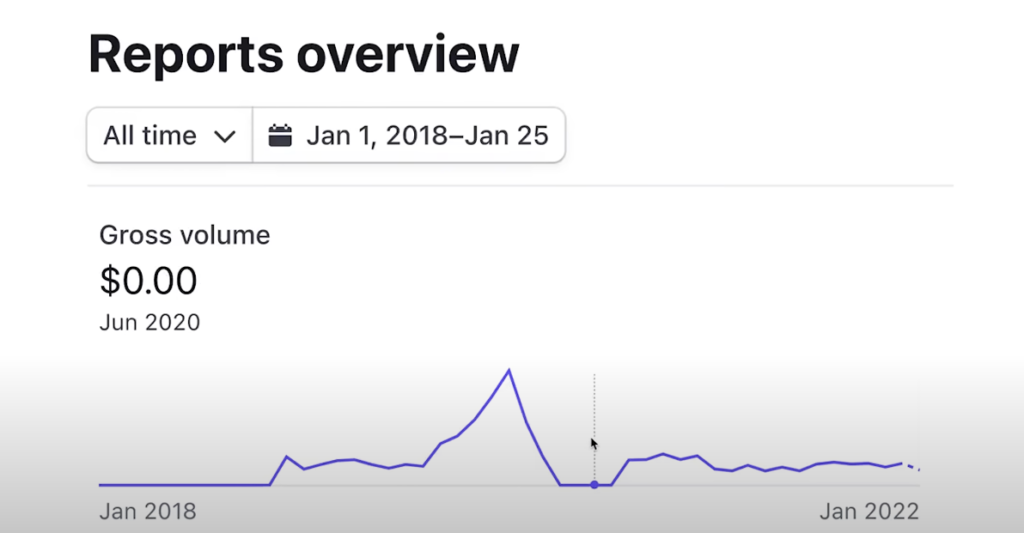
Then the COVID-19 pandemic hit, wiping out his revenue overnight as physical businesses shut down. After years of hard work, Marc found himself back at square one. He took some time off, surfing and enjoying Bali, but the financial pressure mounted. With no income and the future uncertain, he and his girlfriend returned to France, where they eventually got married.
A Moment of Doubt: Considering a “Normal” Job
At his lowest point, Marc found himself questioning his entrepreneurial path. Was it all worth it? Could he really make it as a solopreneur, or was it time to settle for a regular job? To support himself, he took a software engineering job that paid $9,000 a month—nine times more than what he was making as an entrepreneur.

The job provided a sense of stability and worthiness, something Marc hadn’t felt in years. But after six months, he started feeling the itch for freedom again. The desire to control his time and work on his own projects never really went away. When he was unexpectedly laid off, he saw it as a sign—it was time to give entrepreneurship another shot, but this time, he would do things differently.
The Rise: Building Fast and Focusing on Painkillers
Armed with the lessons from his past failures, Marc returned to entrepreneurship with a new approach. Instead of working on passion projects with uncertain demand, he focused on building “painkiller apps”—simple solutions to real problems that people were willing to pay for.
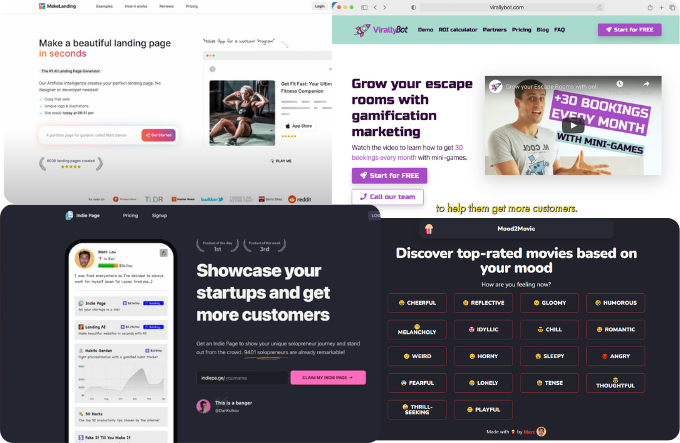
He also decided to adopt a rapid-launch strategy. Marc built and launched six different apps in seven months, gaining small wins along the way. These included a habit tracker, a movie recommendation tool, and a landing page generator. Despite the traction, his income remained around $1,000 per month—far from what he needed to sustain his lifestyle.
The Breakthrough: $40,000 in a Month
Marc’s breakthrough came when he decided to streamline his process. After repeatedly building similar apps, he developed a codebase that could be reused for future projects, allowing him to launch new products faster. He put a price tag on this system and launched it to the public.
To his surprise, the product took off immediately. In the first two hours, he made $500, more than he had ever earned in a single day as an entrepreneur. By the end of the first month, his revenue had skyrocketed to $40,000. For the first time in his entrepreneurial journey, Marc experienced financial success on a scale he had only dreamed of.
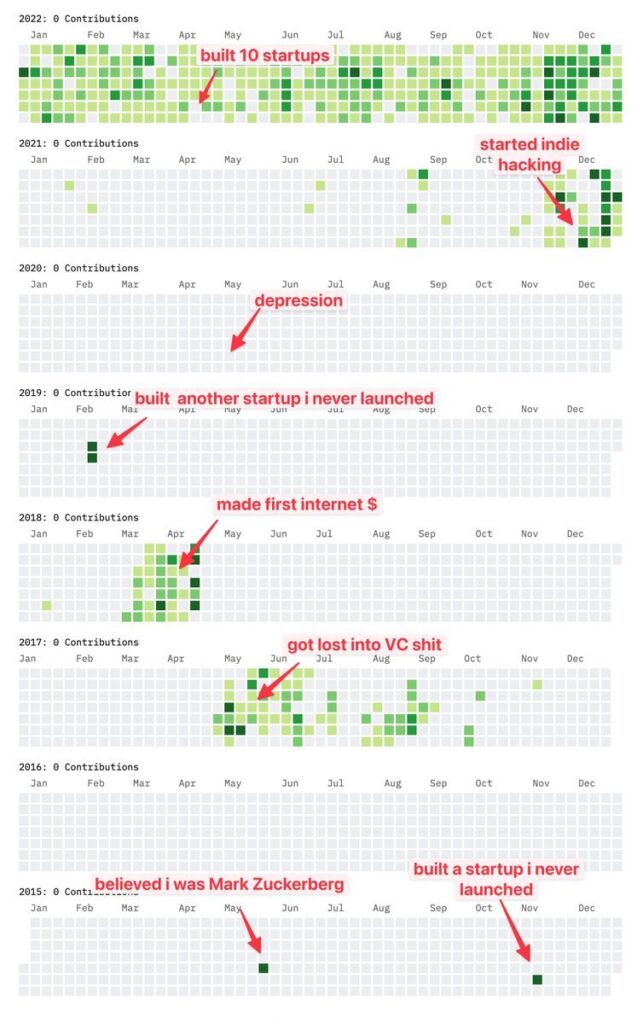
Conclusion: The Power of Persistence
Marc Lou’s story is one of perseverance and adaptation. After five years of failure and self-doubt, he finally found a strategy that worked by focusing on solving real problems and launching quickly. His journey is a testament to the idea that failure is not the end, but a stepping stone to success.
For aspiring entrepreneurs, the lessons are clear:
-
Start with a problem, not an idea
Solve real problems that people are willing to pay for. -
Don’t wait for perfection
Launch quickly, get feedback, and iterate. -
Persistence is key
Each failure is a learning experience that brings you closer to success.
If you’re struggling to make your first dollar online, remember that even small wins can lead to big breakthroughs. Marc Lou’s journey proves that with the right mindset and strategy, success is possible—even after years of failure.

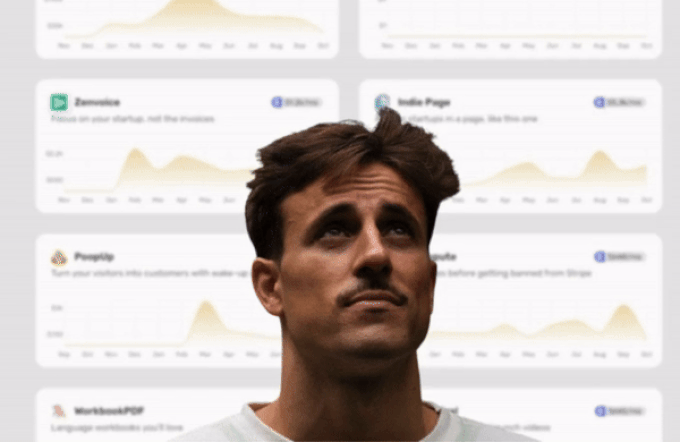
Leave a Reply